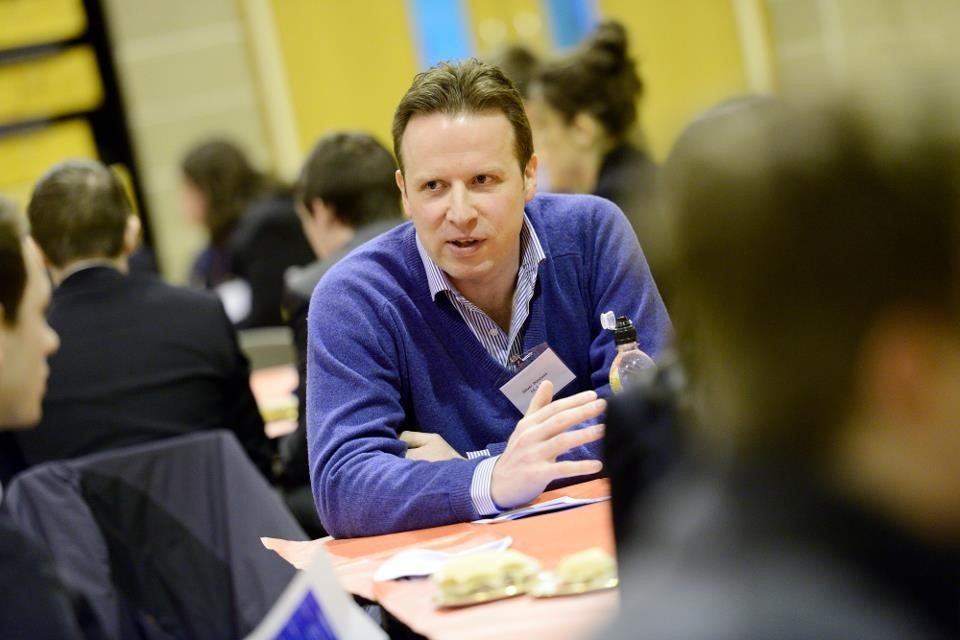Having set up in 2012, Wozedu is working with the likes of Pret A Manger and Four Seasons to provide technology-based matchmaking involving perspective hires.
As the brainchild of entrepreneur Oliver Donovan, the start-up brings together elements of social media, smart algorithms and interactive content to provide careers and education guidance.
To find out more, we sat down with Donovan to hear more detail and discover what he believes is wrong with the current system.
(1) How would you quickly and simply describe what the business does?
Wozedu is a social media platform that operates much like a dating site. Users, who are aged 14-25, can create profiles and connect with educators and employers also signed up to the site. Our unique algorithm then matches these young people to courses and job opportunities based on their portfolio, interests, skills, and experiences.
(2) Why did you believe your idea could become a successful business?
A couple of years ago, I looked at the market and noticed there weren’t any services helping young people get into the workplace. In order to tackle the huge rates of youth unemployment, it was obvious that we needed one.
With 85 per cent of LinkedIn users are over the age of 30, I realised that if I created an employment-based social network, but aimed it a younger demographic, I could assist people in making the correct choices for their future. I also knew that if we combined the ability to make meaningful connections with a substantial advice section, we could really make a difference.
(3) How is it shaking up the status quo?
We’re raising the benchmark for recruitment by allowing companies to have access to a more diverse pool of talent at a much more cost-effective level than previously. Companies can join us free of charge, and then just sit back and watch as our algorithm creates candidate shortlists for them.
Young people also have a space to network with and receive advice from their peers, as well as finding different work opportunities, including internships, graduate schemes, and apprenticeships.
(4) What are the biggest struggles for businesses when it comes to hiring?
Businesses currently struggle to engage with a broad range of young people. We’re giving them a resource which will allow them to reach out to a much more diverse range of candidates.
Social media allows companies to expand their search beyond their locality and explain their aims and ethos’ to a larger amount of people. This inevitably makes the hiring process easier for companies, as well as improving the output of the company due to variety in its workforce.
(5) What are they looking for to make their lives easier?
Businesses want access to quality talent. They’re looking for people who have a wide range of employable skills, from soft skills to technical skills to social skills. Employers are very aware that creating a diverse workforce is a necessity in this day and age, and know that they need to widen their search.
It’s also essential that young people are taught what employers expect from them – there’s a huge issue with skills mismatch at the moment. Graduates apply for jobs they aren’t suited for, not realising that the skills they have are better suited for other positions. Stopping that from happening will have a huge impact on the recruitment process.
(6) How is the labour market changing and what do businesses need to do to prepare for this?
The labour market is a lot more competitive now it’s opened up internationally. Plus, young people are beginning to question what’s best for them and are looking differently at industry sectors. They no longer just want to work for a big company; they want job security, flexibility, and a clear career path. This means companies need to put a lot more effort into recruitment. They need to adapt their company culture to become more relevant to future employees, which means learning what young people today expect from the workplace.
They also need to begin engaging with candidates at an earlier stage. It’ll be tough – but that’s where we come in.
(7) What do you think are the biggest strengths and weaknesses of graduates entering the working world right now?
Graduates are more highly educated than they’ve ever been before and are fantastic at thinking critically and analytically. Those who’ve done a specialised or vocational course, like law or medicine, know their industry inside out, which is indispensable.
However, a lot of graduates lack work experience, which means they haven’t been able to harness the employable skills which are essential in the world of work. Drive and ambition aren’t enough; we need to embed practical skills at an earlier stage in the education process so that people fresh out of university aren’t lagging behind, despite their degree.
See also: Gamifying the job hunt – Debut connects graduates to the right employers







